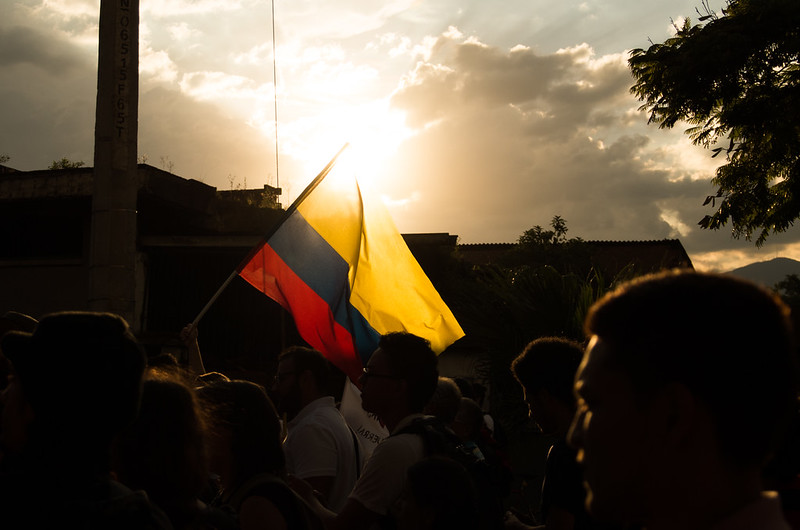One of the political effects of the kidnapping of Luis “Mane” Díaz, father of the renowned Liverpool player “Lucho” Díaz, is that it forced Petro’s plenipotentiaries to the dialogue table to discuss the kidnapping issue.

Germán Ayala Osorio*
The highly publicised kidnapping also contributed to consolidating Colombian society’s rejection of the National Liberation Army (ELN), a subversive group that acknowledged responsibility for the crime.
After Mr. Díaz was released, and at the beginning of the 5th cycle of peace talks with the ELN, one of its commanders, Antonio García, said in his X account: “The ELN does not carry out kidnappings. There are various kinds of deprivation of liberty, but they are different: prisoners, hostages, retained, kidnapped and disappeared”. This is not a matter of political and “revolutionary” semantics. On the contrary, we are faced with a cynical, arrogant, dismissive, defiant, irresponsible and
unacceptable stance by someone who has grown old at the head of a guerrilla movement that has never shown any real will for peace. An anachronistic guerrilla group, led by commanders who, in addition to being messianic, have been incapable of taking the opportunity provided by the Havana peace agreement to put an end to the armed conflict with the state that has been going on for more than 50 years.

What the anachronistic ELN commander said brings to mind the urgent need for conceptual agreements at the negotiating table with the government plenipotentiaries, in order to establish communication, but, above all, to outlaw the kidnapping of civilians for extortive purposes.
García’s statement should be an opportunity for the talks to address not only the issue of kidnapping, but also the conceptual discussion that, despite his cynicism, the ELN commander is putting forward.
However, this discussion should not go beyond the social sphere, because ordinary people do not tend to make nuances or differentiated interpretations of kidnapping, and it is much less helpful to raise this type of disquisition in the midst of the ideological tension that is fed daily by the mass media, which do not support a peaceful and political solution to the armed conflict between the state and the ELN.
Depriving people of their freedom for economic or political reasons is a serious crime that García justifies on the grounds of the need to finance their criminal structure, particularly when they kidnap civilians in order to demand the payment of millions of dollars to return them to their families.
 The proposal that the state and international agents should “finance” them in order to prevent them from continuing kidnapping only makes sense as long as the guerrillas demonstrate a real will for peace.
The proposal that the state and international agents should “finance” them in order to prevent them from continuing kidnapping only makes sense as long as the guerrillas demonstrate a real will for peace.
For now, this willingness is not clear, which makes the offer to “pay” them to cease the abominable crime of kidnapping unfeasible for the time being.
However, conceptual distinctions must be made at the dialogue table. The ELN are responsible for the detention of military and police personnel under the category of “prisoners” in the context of the internal armed conflict and the international legal norms that apply to internal conflicts.
The detention of military and police personnel, as a result of combat, must be assumed as circumstances and events inherent to the internal conflict, the outcome of which must be political and military, which means that there must be a commission ready to create the conditions for the prompt release of the military personnel.
When these same deprivations of liberty of police and soldiers occur when they are in civilian clothes and unarmed, the treatment and recognition of the military action perpetrated by these guerrillas cannot be accepted in the same way as when the hostages were deprived of their liberty in the context of combat.
It is therefore urgent that conceptual discussions take place at the negotiating table and the crime of kidnapping is outlawed.
The ELN must understand that interpreting certain concepts in the light of “revolutionary” action and in the light of the Geneva Protocol II does not guarantee that society will fully understand it.
 Kidnapping civilians, particularly elderly men and women, will never be the same as depriving military and police personnel who have taken part in hostile combat and operations of their freedom.
Kidnapping civilians, particularly elderly men and women, will never be the same as depriving military and police personnel who have taken part in hostile combat and operations of their freedom.
We need only recall the case of Sergeant Karina Ramirez, who, with her daughter and dog, was taken by ELN guerrillas and deprived of her freedom. Even if the sergeant was wearing her uniform, this is a vile and cowardly kidnapping. These differences should not be taken as a kind of “glossary” of war, but as key parts of minimal protocols.
*Germán Ayala Osorio: Social communicator, journalist and political scientist, author of the blog La otra tribuna.
(Photos: Pixabay)












.jpg)












